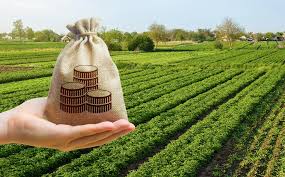From Silicon Valley to Farmland: A Strategic Pivot
The world’s richest individuals are turning their attention from high-tech to high-yield — and not in the way you'd expect. While tech giants dominate headlines, a quieter but equally impactful trend is unfolding: billionaire investment in agriculture. According to a recent report by Fajar.co.id, global billionaires are increasingly directing their capital toward farmland, livestock, and agri-tech ventures. This trend is particularly noticeable among high-net-worth individuals looking to hedge against economic uncertainty while tapping into a sector vital to human survival.
Names like Bill Gates, Jeff Bezos, and Indonesian billionaire Peter Sondakh have made high-profile acquisitions or investments in agricultural assets. Their motivations range from long-term food security and sustainability to portfolio diversification and climate-resilient revenue. Agriculture is no longer seen as a traditional or slow-growth sector. It’s now being recognized as a strategic asset class, especially in a world facing climate volatility, rising food demand, and fragile supply chains.
The increased billionaire investment in agriculture signals a pivotal shift in how elite investors view land, food systems, and the future of capital preservation.
Why Billionaires Are Betting on Farmland
Several key factors are driving this newfound enthusiasm among billionaires for agriculture:
- Land as a Store of Value
- Farmland has historically shown resilience during economic downturns. Unlike stocks or crypto, land is tangible, productive, and relatively insulated from market volatility. In countries with growing populations and limited arable land — such as Indonesia — farmland value tends to appreciate over time.
- Climate Resilience and ESG Goals
- As climate change accelerates, agriculture is both a risk and an opportunity. Investors are betting on climate-resilient crops, regenerative farming, and sustainable livestock practices. These initiatives align with Environmental, Social, and Governance (ESG) investment criteria, allowing billionaires to achieve impact goals while generating returns.
- Rising Food Demand
- With the global population projected to reach 10 billion by 2050, food demand is expected to surge. Agriculture sits at the core of this demographic shift. Investment in the sector allows billionaires to be part of a long-term growth narrative, especially in regions like Southeast Asia and Sub-Saharan Africa.
- Tech-Enabled Efficiency
- Modern farming is no longer just tractors and irrigation. Today’s agriculture leverages drones, AI-powered crop analysis, soil sensors, and data-driven supply chains. This integration of technology creates efficiencies that appeal to venture-minded billionaires looking to modernize traditional industries.
According to Indonesian media reports, billionaire Peter Sondakh has made recent moves in both livestock and plantation agriculture, signaling a belief in Indonesia’s potential to be a regional agri-powerhouse. His strategy mirrors that of global peers who are combining agriculture investment with long-term food security bets.
Indonesian Agriculture: A New Frontier for Elite Capital
Indonesia is emerging as a fertile ground for billionaire investment in agriculture due to its vast land resources, strategic geography, and growing domestic market. The country has over 55 million hectares of agricultural land and one of the highest food consumption rates in Southeast Asia. From palm oil and rice to fisheries and cattle, Indonesia offers a diverse agri-economy with multiple entry points for investors.
Furthermore, government support has increased in recent years. President Joko Widodo’s administration continues to push for food sovereignty and infrastructure development in rural areas. This includes irrigation systems, farm mechanization incentives, and export-oriented agri-programs that make the sector more appealing to institutional and private capital.
For billionaires, Indonesia presents a dual advantage: the opportunity to earn solid returns and to shape the country’s food systems. Investment in agri-businesses, food processing, and rural logistics offers scalable opportunities with real societal impact.
Several billionaire-backed ventures are also exploring partnerships with local cooperatives, enabling smallholder farmers to access better tools, financing, and markets. This hybrid model creates shared value, turning agriculture from a fragmented, undercapitalized sector into a robust growth engine.
Ethical Questions and Long-Term Risks
While billionaire investment in agriculture brings capital and innovation, it also raises important ethical and governance concerns.
Critics argue that the concentration of farmland ownership in the hands of billionaires could displace local farmers and disrupt rural communities. This is especially true in regions where land rights are weakly enforced or vulnerable to corruption. Ensuring that investments do not lead to land grabbing or exploitative labor practices is crucial.
There is also the risk of prioritizing export-driven monocultures over diverse, resilient food systems. If billionaire-led projects focus solely on profitability, they may ignore environmental sustainability or food security for local populations.
To mitigate these concerns, responsible investment frameworks are essential. This includes transparent land acquisition, fair compensation, inclusive partnerships, and environmental safeguards. Some billionaires, including Bill Gates, have publicly committed to sustainable farming practices and open data initiatives in agriculture. But critics maintain that much more oversight and regulation are needed.
In Indonesia’s case, public-private dialogue and community engagement are key to ensuring that agricultural investment benefits the broader population — not just the ultra-wealthy.
The Future of Farming Is Big, Bold, and Billionaire-Backed
Whether motivated by climate adaptation, long-term returns, or personal interest in sustainability, billionaires are clearly redefining the future of food and farming. With advancements in agri-tech, shifting consumption trends, and growing pressure for sustainable development, agriculture is moving from the periphery to the center of global capital flows.
The trend of billionaire investment in agriculture is expected to accelerate in the coming decade. Institutional investors may follow suit, creating a wave of financial innovation in farmland leasing, agricultural REITs, and agri-tech venture funding.
For countries like Indonesia, this could be transformative — if managed well. With thoughtful policy, community engagement, and transparent governance, billionaire capital can help revitalize rural economies, improve food resilience, and promote innovation in one of the world’s oldest industries.
But the balance must be struck carefully. The future of farming should not be shaped solely by the world’s wealthiest. It must include farmers, scientists, policymakers, and communities working together to create an equitable and sustainable agri-food ecosystem.
Read More






 Wednesday, 04-02-26
Wednesday, 04-02-26







